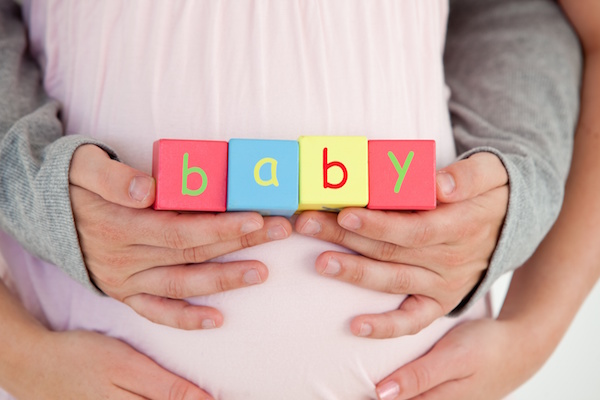
WEDNESDAY, Jan. 28, 2015 (HealthDay News) — The number of measles cases linked to the outbreak at Disney amusement parks in southern California has reached 87, health officials are reporting.
The California Department of Public Health said Monday that the vast majority of infections — 73 — are in California. The rest are in Arizona, Colorado, Nebraska, Oregon, Utah, Washington and Mexico, the Associated Press reported Wednesday.
Most of those people hadn’t gotten the measles-mumps-rubella — or MMR — vaccine, officials said.
In related news, the Arizona Republic reported Wednesday that two new cases of measles have been confirmed in the state, and local public health officials worry that hundreds more people may have been exposed to the highly infectious disease this month.
The outbreak has reached “a critical point,” said Will Humble, director of the Arizona Department of Health Services, adding that it could be far worse than the state’s last measles outbreak in 2008, the newspaper reported.
“I am certain we will have more just based on the sheer number of people exposed this time,” he said.
“Patient zero” — or the source of the initial infections — was probably either a resident of a country where measles is widespread or a Californian who traveled abroad and brought the virus back to the United States, the AP reported.
The outbreak is occurring 15 years after measles was declared eliminated in the United States. But the new outbreak illustrates how quickly a resurgence of the disease can occur.
And health experts explain the California outbreak simply.
“This outbreak is occurring because a critical number of people are choosing not to vaccinate their children,” said Dr. Paul Offit, director of the Vaccine Education Center and an attending physician at The Children’s Hospital of Philadelphia’s Division of Infectious Diseases.
“Parents are not scared of the disease” because they’ve never seen it, Offit said. “And, to a lesser extent, they have these unfounded concerns about vaccines. But the big reason is they don’t fear the disease.”
The American Academy of Pediatrics recommended last week that all parents vaccinate their children against measles.
Dr. Yvonne Maldonado, vice chair of the academy’s Committee on Infectious Diseases, said: “Delaying vaccination leaves children vulnerable to measles when it is most dangerous to their development, and it also affects the entire community. We see measles spreading most rapidly in communities with higher rates of delayed or missed vaccinations. Declining vaccination for your child puts other children at risk, including infants who are too young to be vaccinated, and children who are especially vulnerable due to certain medications they’re taking.”
The United States declared measles eliminated from the country in 2000. This meant the disease was no longer native to the United States. The country was able to eliminate measles because of effective vaccination programs and a public health system for detecting and responding to measles cases and outbreaks, according to the U.S. Centers for Disease Control and Prevention.
But in the intervening years, a small but growing number of parents have chosen not to have their children vaccinated, due largely to what infectious-disease experts call mistaken fears about childhood vaccines.
Researchers have found that past outbreaks of vaccine-preventable diseases are more likely in places where there are clusters of parents who refuse to have their children vaccinated, said Saad Omer, an associate professor of global health, epidemiology and pediatrics at Emory University School of Public Health and Emory Vaccine Center, in Atlanta.
“Vaccine refusals” refer to exemptions to school immunization requirements that parents can obtain on the basis of their personal or religious beliefs.
“California is one of the states with some of the highest rates in the country in terms of exemptions, and also there’s a substantial clustering of refusals there,” Omer said. “Perceptions regarding vaccine safety have a slightly higher contribution to vaccine refusal, but they are not the only reason parents don’t vaccinate.”
Other reasons include the belief that their children will not catch the disease, the disease is not very severe and the vaccine is not effective, Omer noted.
A big contributing factor to the parents’ continuing concerns about vaccine safety was a 1998 fraudulent paper published and later retracted in the medical journal The Lancet. The study falsely suggested a link between the measles-mumps-rubella vaccine and autism. The lead author of that paper, Andrew Wakefield, has since lost his medical license for having falsified his data.
Several dozen studies and a report from the Institute of Medicine have since found no link between autism and any vaccines, including the MMR vaccine.
The American Academy of Pediatrics, the U.S. Centers for Disease Control and Prevention and the American Academy of Family Physicians all recommend that children receive the MMR vaccine at age 12 to 15 months, and again at 4 to 6 years.
The most common side effects of the MMR vaccine are a fever and occasionally a mild rash. Some children may experience seizures from the fever, but experts say these seizures have no long-term negative effects.
Measles is one of the most contagious of human diseases. The airborne virus can linger in an area up to two hours after an infected person leaves, and approximately 90 percent of people without immunity will become sick if exposed to the virus.
Serious complications from measles can include pneumonia and encephalitis, which can lead to long-term deafness or brain damage. An estimated one in 5,000 cases will result in death, according to Offit.
More information
Visit the U.S. Centers for Disease Control and Prevention for more on the measles.
Copyright © 2026 HealthDay. All rights reserved.

